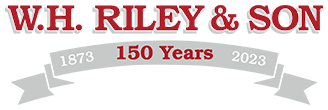Should I Install A Propane Stove?
 If you are a new homeowner or in the midst of a full-on kitchen remodel, you may be wondering if installing and using a propane stove is the right move for you and your home.
If you are a new homeowner or in the midst of a full-on kitchen remodel, you may be wondering if installing and using a propane stove is the right move for you and your home.
When it comes to stoves there are options. You can go with electric stoves, induction stoves or gas stoves, just to name a few. Stoves that are powered by propane fall into the gas stove category.
So how do you begin to answer the question “should I install a propane stove”? Let’s break down some of the types of stoves that are out there on the market to provide some insight and answers to that very question.
Natural Gas Stoves
While, as mentioned above, a stove that is powered by propane is considered a gas stove, there are differences between natural gas stoves, which can use a variety of gases for fuel and power, and propane stoves. One of the largest differences is found in the gas jet nozzles. The nozzles on a propane stove have considerably smaller holes due to the fact that propane is highly pressurized.
Electric Stoves
Perhaps evident by their name, electric stoves are powered by electricity. While they are helpful for things like keeping a kitchen cool even when on, they often cook food slowly and cost more than gas stoves. And, since they rely on power and electricity to run, you won’t find yourself cooking in the kitchen in the event of a blackout.
Propane Stoves
While propane is a gas, it does not contain any methane gas, which is not the case for natural gas and can be a concern when using a natural gas stove. Propane is not a greenhouse gas and in, fact, it is a green, clean-burning fuel.
Why Switch To Propane?
If you are contemplating installing and using a propane stove here are some advantages of using the fuel that may make your decision a little easier:
- Propane stoves offer precise temperature control, which helps you achieve that perfectly cooked meal. Cooking with propane is also faster.
- Since propane appliances, including stoves, don’t rely on electricity or gas lines, you’ll be able to cook through a power outage.
- Propane stoves and propane appliances operate more efficiently than electric appliances. This saves propane users both time and money.
- As mentioned, propane is clean-burning and, therefore, is environmentally friendly. The fact that the gas is clean-burning also helps the appliances it fuels last longer.
The Debate Over Gas Stoves
Over the last few years, the use of gas stoves, including stoves that run on propane, has been quite a hot topic in some states, including Massachusetts. The government has even been asked to look into health and safety concerns regarding the appliances. Some cities have even gone as far as banning gas connections in newly constructed buildings entirely.
The concern about using gas stoves is about both environmental issues (gas stoves emit greenhouse gases into the air) and health issues. Certain studies indicated that natural gas stoves could be associated with air pollution hazards. However, the fact is that cooking on any type of stove – gas, electric, wood – produces particulate matter. That’s why it’s always a good idea to use your kitchen range hood when cooking. This helps create some ventilation in your kitchen.
Researchers have discovered that natural gas stoves leak methane gas, which is a potent greenhouse gas, even when they’re off and they produce additional air pollutants such as nitrogen oxides, which can contribute to respiratory diseases.
Propane, on the other hand, is not considered a greenhouse gas, as mentioned above, and it actually doesn’t contain methane gas at all. Therefore, using a propane stove decreases the amount of methane gas that you are exposed to.
Making The Switch To Propane
W.H. Riley can provide reliable propane delivery in the southeastern Massachusetts area to fuel all of your propane appliances. Contact us today to learn more.

